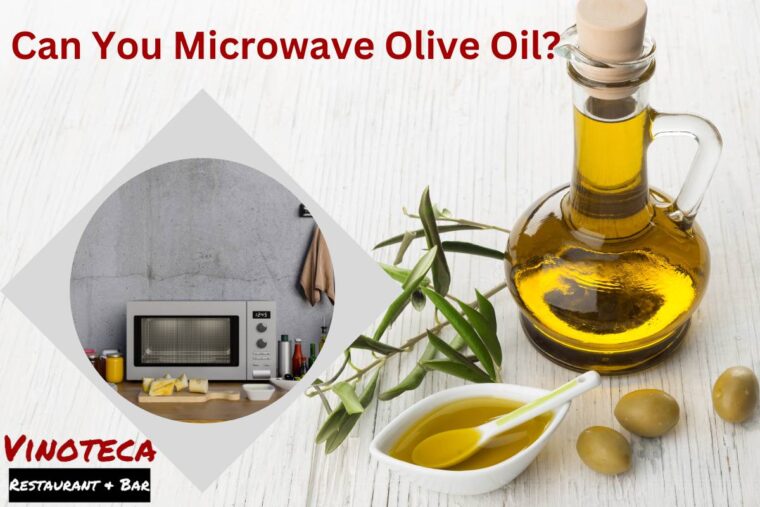Today’s busy lifestyle means that many of us have to find ways to make meals and snacks quickly, and one question often posed is ‘Can you microwave olive oil?’.
Although the idea of heating up oil might seem convenient, it may not be the best option if you want to get full benefit from its nutritional components.
In this blog, we will discuss whether microwaving olive oil is a good cooking method for both your health and taste preferences.
We will explore how long it takes for methyl esters in olive oil to break down when microwaved, as well as outlining potential disadvantages and risks associated with using such high heat.
Finally, we offer an alternative method for enjoying all of the qualities that make olive oil so valuable – without damaging your food or taking away nutritional value!
Can You Microwave Olive Oil?
Yes, you can microwave olive oil. However, it is important to understand that microwaving will degrade the quality and flavor of your olive oil.

Additionally, heating an oil above its recommended temperature could cause some of its beneficial components—such as antioxidants and polyphenols—to break down.
For this reason, experts usually advise against using a microwave if you want to keep the original properties intact.
When heated in a microwave, certain parts of the oil molecules—called methyl esters—break down quickly. This occurs at temperatures higher than 250°F (121°C).
As a result, the taste and smell are often affected by microwaving olive oil. The end product may become slightly bitter or even rancid-tasting.
Additionally, heating oil in a microwave also creates the risk of it splattering and burning the skin if not handled correctly.
It is also important to note that using a microwave to heat olive oil could cause oxidation—a process that produces harmful free radicals when exposed to high temperatures.
An Alternative Method: Cold-Pressed Olive Oil
Rather than microwaving your olive oil, you can enjoy all its nutritional benefits by using cold-pressed or extra virgin olive oil.
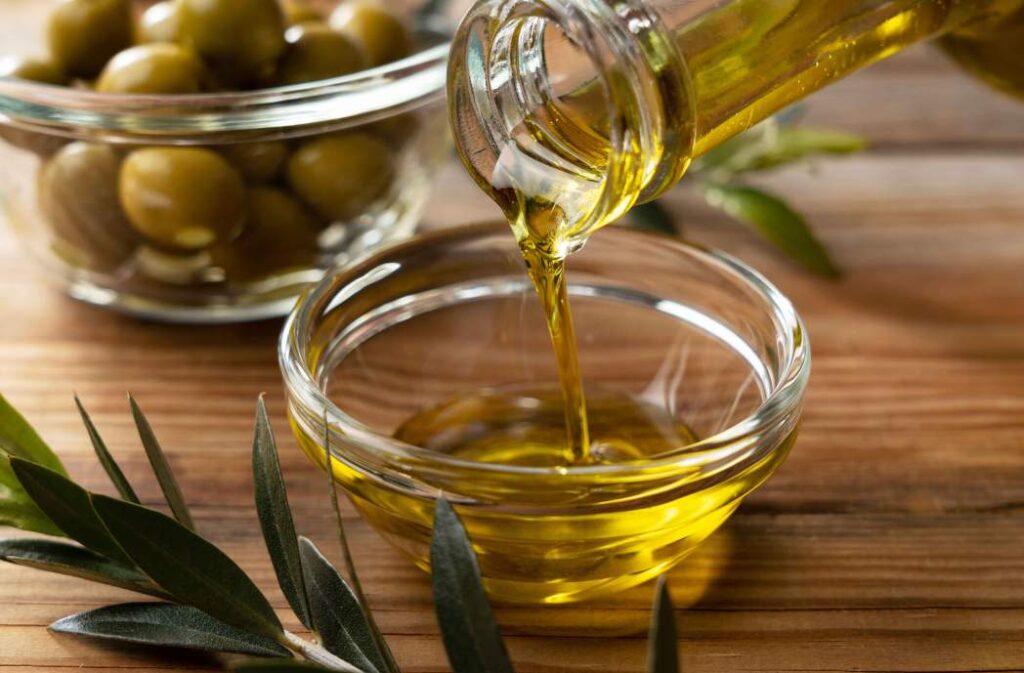
Cold-pressing preserves the flavor and many of the healthful components within the oil because it does not require any heat or chemical treatments.
When consumed raw, cold-pressed extra virgin olive oil has significant amounts of beneficial antioxidants and polyphenols.
More Related Topic You Should Read
- Can You Reboil Eggs? The Truth Finally Revealed!
- Can You Microwave Sour Cream? Discover the Surprising Truth!
- Can You Defrost Salmon In The Microwave? YES! Follow These Steps
- Can You Use A Microwave While On Oxygen: What You Need to Know!
- Breaking News: Can You Microwave Mayo? Discover the Surprising Truth Now!
What Types of Olive Oil Can You Use in the Microwave?
Though it is not recommended to use the microwave to heat up any type of olive oil, some types are better suited for microwaving than others.
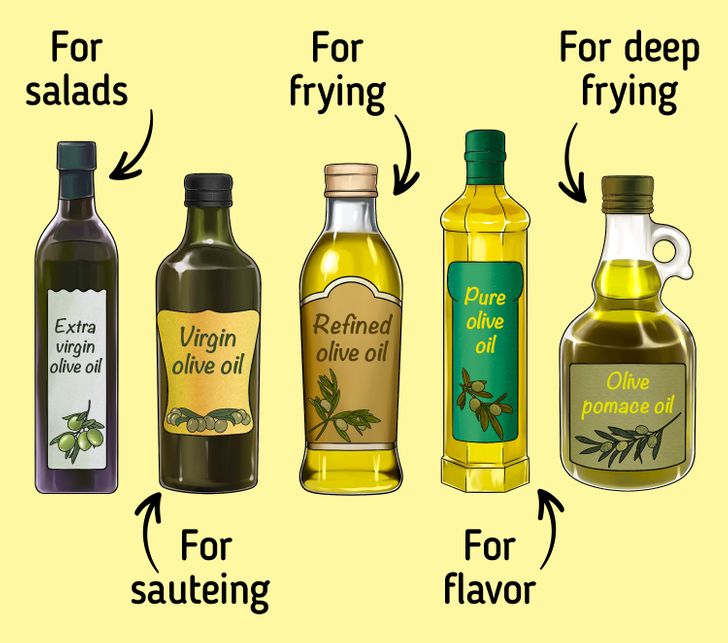
🔸 Extra virgin and cold-pressed olive oils should never be microwaved as they contain more delicate compounds that can break down when exposed to high temperatures.
🔸 Light or blended olive oils are usually considered safe for microwaving due to their lower levels of healthful components, such as antioxidants and polyphenols.
However, even these varieties may lose flavor and nutritional value after being heated in a microwave. Therefore, if you want to reap the full benefits of olive oil, it’s best to avoid using a microwave altogether.
In conclusion, microwaving olive oil is not recommended due to the risk of damaging its nutritional content and flavor.
Instead, you should opt for cold-pressed or extra virgin olive oil in order to maintain the original quality of your food without sacrificing taste or nutrition. This way you can enjoy all the health benefits that come with consuming raw, unprocessed olive oil.
Why People Might Want To Microwave Olive Oil
Despite the potential risks associated with microwaving olive oil, some people might be tempted to use a microwave for convenience. Microwaving is certainly faster than stovetop methods and can save time in certain situations.

Additionally, some people may also believe that microwaving their olive oil could help preserve its flavor better than other cooking techniques.
Though this may be true to an extent, it’s important to understand that even light or blended varieties of olive oil will still lose some nutritional value when heated in a microwave.
Overall, it’s best to avoid using the microwave whenever possible if you want to maintain the original quality and nutritional content of your food.
Even if you don’t plan on consuming raw olive oil, there are still plenty of other cooking methods that can help preserve its flavor and health benefits.
For example, you can use the stovetop to heat your food with olive oil or roast vegetables in a lower heat oven. This will ensure that your meal is as healthy and flavorful as possible without sacrificing any of the nutritional value of your ingredients.
All these factors make microwaving an appealing option for those who are short on time but still want to enjoy the flavorful and nutritional benefits of olive oil.
Though it is not recommended, those who decide to use a microwave should make sure that they are using light or blended olive oils in order to maximize the health benefits while minimizing any risks associated with microwaving.
Possible Problems When Heating Olive Oil in the Microwave

Though some people may be tempted to use a microwave for convenience, there are several issues and risks associated with this method.
⛔️ Microwaving olive oil can cause it to break down and lose its nutritional content more quickly than other methods of heating.
⛔️ Additionally, the breakdown of compounds in the olive oil increases when exposed to high temperatures in a microwave. This can lead to an oxidative reaction that creates harmful free radicals which can damage cells in the body and increase the risk of chronic disease.
⛔️ Finally, using a microwave to heat olive oil can also introduce toxins into your food as many plastics release chemicals when they are heated at high temperatures.
For these reasons, it is best to avoid microwaving olive oil altogether if possible. Instead, you should opt for cold-pressed or extra virgin olive oil in order to maintain the original quality of your food without sacrificing taste or nutrition.
Tips for Safely Heating Olive Oil in the Microwave
Microwaving olive oil can be a quick and convenient way to add a little extra flavor to your dishes. However, if not done correctly, it can also be a dangerous endeavor. That’s why we’ve put together a list of helpful tips to keep in mind when microwaving olive oil.
If you do choose to use a microwave to cook with olive oil, there are a few tips you can follow to enhance the flavor and nutritional content of your food.
1. Use Olive Oil as an Ingredient
First and foremost, it’s important to note that olive oil should only be microwaved when it’s being used as an ingredient in a recipe.

If you’re planning on using it for cooking or frying, it’s best to stick to the stovetop or oven. This is because microwaving olive oil on its own can cause it to overheat and potentially catch fire.
2. Heat the Olive Oil in Small Quantities
When microwaving olive oil, it’s important to heat it in small quantities. This not only helps to prevent overheating, but it also ensures that the oil heats more evenly.
A good rule of thumb is to heat no more than 1/4 to 1/2 cup of olive oil at a time.
3. Use a Microwavable Container
When microwaving olive oil, it’s important to use a microwavable container.
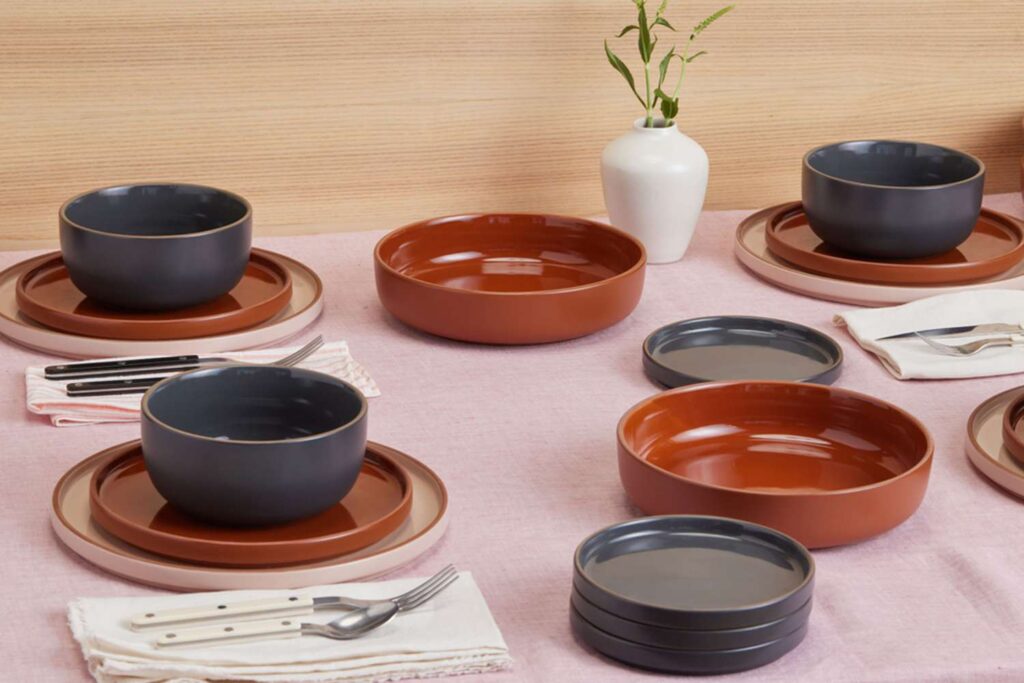
Not all materials are safe to use in the microwave, so be sure to check the label of your container before heating it up. Glass and ceramic containers are generally safe options.
4. Use a Kitchen Thermometer
To ensure that your olive oil is not overheated, it’s a good idea to use a kitchen thermometer.
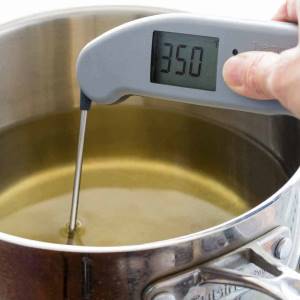
Simply insert the thermometer into the oil and check the temperature regularly. Olive oil should never be heated above 375 degrees Fahrenheit.
5. Use Kitchen Gloves
Finally, it’s important to protect your hands when handling hot olive oil.
Use a pair of kitchen gloves to handle the container and to pour the oil into your recipe. This will help prevent accidental burns and spills.
Microwaving olive oil can be a convenient way to add extra flavor to your dishes, but it’s important to do it safely. With these tips in mind, you can enjoy delicious olive oil-infused dishes without any mishaps.
The Health Benefits of Consuming Olive Oil
Olive oil is a versatile and tasty ingredient, but its benefits extend far beyond just adding flavor to your dishes.
In addition to being high in healthy fats, olive oil is also packed with antioxidants and other nutrients that can help boost your health.

✔️ Firstly, olive oil contains oleic acid, which has been linked to lower levels of bad cholesterol. This can help reduce the risk of heart disease and stroke.
✔️ It also contains polyphenols, which are powerful antioxidants that can protect against damaging free radicals in the body.
✔️ Another great benefit of consuming olive oil is its anti-inflammatory properties. Studies have shown that it may be beneficial in reducing inflammation associated with conditions such as arthritis.
Additionally, research suggests that consuming olive oil may improve cognitive health and protect against neurological diseases like Alzheimer’s.
✔️ Finally, olive oil can also help boost your immune system. It contains vitamin E, which is essential for a healthy immune response. Additionally, it also contains antibacterial and antiviral compounds that can help ward off infections.
Here are just a few of the health benefits of consuming olive oil:
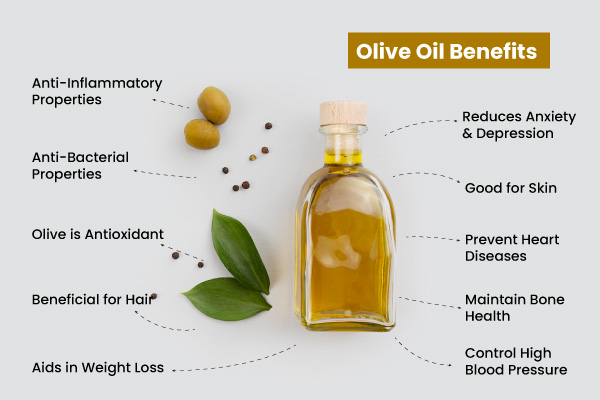
1️⃣ Reduces the risk of heart disease: Olive oil is rich in monounsaturated fatty acids, which have been shown to lower levels of LDL cholesterol (the “bad” cholesterol) and reduce the risk of heart disease.
2️⃣ Helps control blood sugar: Studies have shown that consuming olive oil can help regulate blood sugar levels, which is important for people with diabetes or those at risk for developing the disease.
3️⃣ Promotes healthy digestion: Olive oil has been shown to help reduce inflammation in the gut, which can lead to better digestion and a reduced risk of digestive disorders.
4️⃣ Supports healthy skin: Olive oil is rich in antioxidants and healthy fats, which can help protect the skin from damage and keep it looking healthy and youthful.
5️⃣ Helps with weight loss: Studies have shown that consuming olive oil can help promote weight loss and reduce the risk of obesity.
6️⃣ Reduces the risk of cancer: Olive oil contains compounds that have been shown to have anti-cancer properties, making it a potentially powerful tool in the fight against cancer.
7️⃣ Boosts brain function: Olive oil is rich in polyphenols, which have been shown to improve cognitive function and reduce the risk of age-related cognitive decline.
8️⃣ Helps reduce inflammation: The anti-inflammatory properties of olive oil have been shown to be effective in reducing inflammation throughout the body, which can help reduce the risk of chronic diseases such as arthritis and Alzheimer’s disease.
9️⃣ Promotes healthy aging: The antioxidants in olive oil have been shown to help protect against age-related damage, making it a great choice for anyone looking to promote healthy aging.
🔟 Supports healthy bones: Olive oil contains vitamin K, which is important for bone health and may help reduce the risk of osteoporosis.
Overall, olive oil is a versatile and healthy ingredient that can do wonders for your health. From reducing the risk of heart disease to promoting healthy skin and supporting healthy aging, there are many reasons to make this oil a part of your daily diet.
How to Store & Care for Your Olive Oil

1. Store it in a cool, dry place
Olive oil should be stored away from direct sunlight and heat sources as high temperatures can cause oxidation and spoil the flavor of the oil.
2. Choose the right container
Glass bottles are best for storing olive oil as plastic containers may cause a reaction with the oil that could affect its quality. It’s also important to choose opaque containers as light exposure can cause oxidation and reduce freshness.
3. Use airtight lids
It’s important to keep your olive oil covered with an airtight lid at all times to prevent oxygen from entering the bottle, which can lead to rancidity over time.
Additionally, make sure you avoid using metal lids or caps, as these can react with the oil and cause it to oxidize.
4. Store it away from strong odors
Olive oil is very sensitive to odor molecules, so it’s important to store your olive oil away from other foods that have a strong smell. This will help keep the flavor of your olive oil intact for longer periods of time.
5. Consume it within 6 months
For optimal freshness, use your olive oil within six months after opening and immediately reseal tightly after use in order to keep oxygen out and ensure maximum freshness. If you notice any off-flavors or aromas, discard of the olive oil right away.
These tips should help you get the most out of your olive oil and keep it fresh for longer! Ultimately, following these guidelines will help you enjoy the many health benefits that olive oil has to offer.
By taking good care of your olive oil, you can maximize its potential benefits for your overall health.
📝 Bonus Tip: Make sure that all containers used for storing olive oil are marked with the date they were first opened so that you know when it’s time to discard them and buy a new bottle. This way, you can make sure you’re always using the freshest olive oil possible!
Alternatives to Microwaving Olive Oil
Here are some alternative methods to microwaving olive oil that offer the same health benefits as heating it in the microwave:
1️⃣ Stove top
You can heat your olive oil in a pan on the stove top over medium-low heat. This is an effective way to heat it up, and you can also easily increase or decrease the temperature as needed.
2️⃣ Double boiler method
You can also use a double boiler to gently warm the oil without overheating it. Simply place the oil in a glass bowl or jar over boiling water and wait until it reaches the desired temperature before using.
3️⃣ In a hot bath of water
Another easy way to heat up your olive oil is by placing it in a sealed container in a hot bath of water for 10 minutes or so, until it reaches its optimal temperature. Be sure to keep an eye on the water and adjust accordingly.
4️⃣ In the oven
You can also place your olive oil in a glass container or jar and heat it up in a preheated oven at a low temperature (around 200°F) for 10 minutes or so. This is another great way to get the right temperature without overheating it.
By following these tips, you can safely heat your olive oil without compromising its quality or flavor. Doing this will help ensure you’re getting all of its amazing health benefits!
FAQs on Can You Microwave Olive Oil
How long should you microwave olive oil?
It is generally recommended to only microwave olive oil for no more than 20 seconds at a time, as this will help avoid overheating and oxidation.
How do I know when my olive oil has gone bad?

If your olive oil has an off-flavor or aroma, or appears cloudy or discolored, then it’s likely that it has gone bad. It’s best to discard of the oil right away in order to prevent any health risks.
Is olive oil toxic when heated?
Olive oil is not toxic when heated, but it can become rancid overtime if exposed to too much heat or oxygen. Therefore, it’s best to avoid heating olive oil beyond the recommended 20 seconds in order to preserve its quality and flavor.
Is it safe to microwave oil?

No, it is not safe to microwave olive oil as it can cause oxidation and reduce its nutritional value. It’s best to use alternative methods such as stove top, double boiler, or in a hot bath of water instead.
How long does olive oil last?
When stored properly in an airtight container away from direct sunlight and heat sources, olive oil can last up to two years unopened. Once opened, however, it should be consumed within six months for optimal freshness.
Summary Up
In conclusion, it is possible to microwave olive oil, however it’s not recommended. Due to its low boiling point, you could end up with a kitchen full of smoke if you don’t watch the temperature.
Additionally, overheating olive oil can deplete its antioxidant and nutritive properties for health benefits as well as impair the flavor. To play it safe stick to using an oven or stove top instead.
We hope this article has been helpful in giving you a better understanding of can you microwave olive oil. By following these tips, you can enjoy the nutritional benefits and flavor of this fantastic ingredient without any worry or hassle! Thanks for reading!

